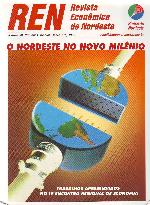A AGRICULTURA FAMILIAR E O DESENVOLVIMENTO SUSTENTÁVEL: PROBLEMAS CONCEITUAIS E METODOLÓGICOS NO CONTEXTO HISTÓRICO DA AMAZÔNIA
DOI:
https://doi.org/10.61673/ren.1999.1951Palavras-chave:
Agricultura Familiar, Desenvolvimento Sustentável, Brasil-AmazôniaResumo
Explicita a evolução do modelo do ciclo de fronteira para a consolidação de uma tendência à agricultura familiar em base de sistemas de produção mais complexos que incluem culturas permanentes, e pequena criação de gado. Essa tendência foi detectada mais claramente no nordeste paraense, mas comprovada estatisticamente para o Estado do Pará e região Norte. Demonstra que a tese do ciclo de fronteira tem uma validez limitada, sobretudo nas regiões de colonização mais antiga. Contudo, mostra sistemas de produção que se baseiam mais fortemente na pecuária no sul do Pará e nas culturas permanentes na Transamazônica que fogem da classificação simplificada como agricultura itinerante, mas implicam trajetórias diferentes do nordeste paraense.








